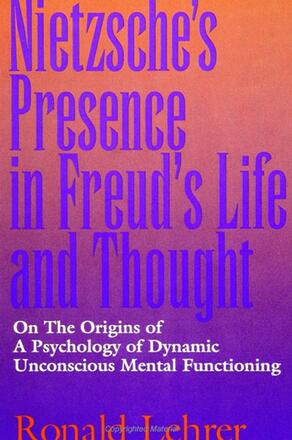
Nietzsche's Presence in Freud's Life and Thought
On the Origins of a Psychology of Dynamic Unconscious Mental Functioning
Alternative formats available from:
Description
This book examines the nature of Freud's relationship to the philosopher Friedrich Nietzsche. Nietzsche regarded himself, among other things, as a psychologist. His psychological explorations included an understanding of the meaning and function of dreams, the unconscious, sublimation of drives, drives turned inward upon the self, unconscious guilt, unconscious envy, unconscious resistance, and much more that anticipated some of Freud's fundamental psychoanalytic concepts. Although Freud wrote of Nietzsche having anticipated psychoanalytic concepts, he denied that Nietzsche had any influence on his thought.
Ronald Lehrer is a psychotherapist at the Midwood Psychotherapy Center and a Lecturer in the School of Education at Brooklyn College.
Reviews
"...a gold mine of wonderful information about both Nietzsche and Freud and there is a great deal of it that is original—not to be seen elsewhere...brings together some extremely important material...material I have never seen assembled in such a comprehensive manner...an excellent piece of scholarship." — Irvin Yalom, author of When Nietzsche Wept
"Freud may have been less than candid about the influence of Nietzsche and the evidence that Lehrer presents raises serious questions about it...the author does create some doubt about Freud's denial of such influence...the author does make a good case to prove his point and it is one that is long overdue...I would expect a reasonable number of the sophisticated readership to buy it." — Emanuel Rice, author of Freud and Moses